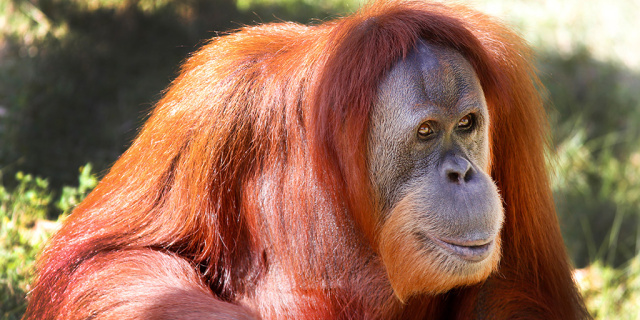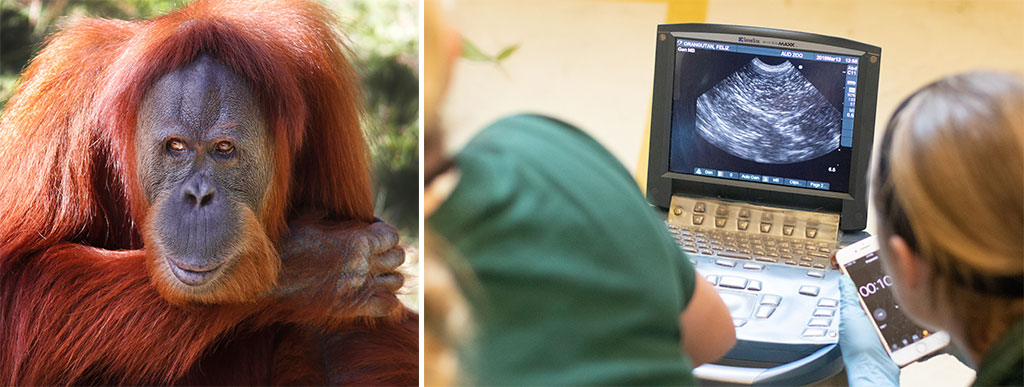
Feliz, a Sumatran orangutan living in Audubon Zoo in New Orleans, Louisiana, is expecting her second child. Feliz’s newest offspring is due late this summer. “All of the work that the primate care team has done has paid off, and we could not be more excited to have a baby orangutan on the way,” says Courtney Eparvier, Curator of Primates and Sea Lions at the zoo.
In a video released by the Audobon Nature Institute, Eparvier describes how ultrasound is an important part of taking caring of Feliz and her baby:
“We are making sure she’s getting prenatal vitamins, and also what’s really cool is the maternal training that the team is conducting with her. We are teaching her to present for an ultrasound so we can get measurements on the fetus to make sure everyone’s healthy. We see the [fetus’s] heartbeat and compare it to Feliz’s, which has been really cool.”
In the video, Eparvier demonstrates how her team examines Feliz using a Sonosite ultrasound machine. Sonosite ultrasound has proven popular with veterinarians, who have used these devices to examine dogs, horses, and even elephants.
Feliz’s soon-to-be-born child is also a crucial opportunity for her first child, Menari (born in 2009), to learn the rigors of motherhood. Young female orangutans learn how to raise babies by observing their mothers and other adult females. Seeing Feliz with her new baby will help prepare Menari to raise offspring of her own one day.
This latest pregnancy comes from the successful mating of Feliz and Jambi, a male orangutan who came to the Audubon Zoo from Hannover Zoo in Germany. Feliz and Jambi are part of the Species Survival Program, a series of initiatives launched by the Association of Zoos and Aquariums to conserve endangered animals.
The International Union for Conservation of Nature have classified Sumatran orangutans as threatened with extinction. There are fewer than 14,000 orangutans living in the wild. Sadly, their numbers are declining due to habitat destruction, mostly caused by the spread of palm oil plantations. Feliz and her family are an important part of preventing the extinction of these remarkable great apes.


